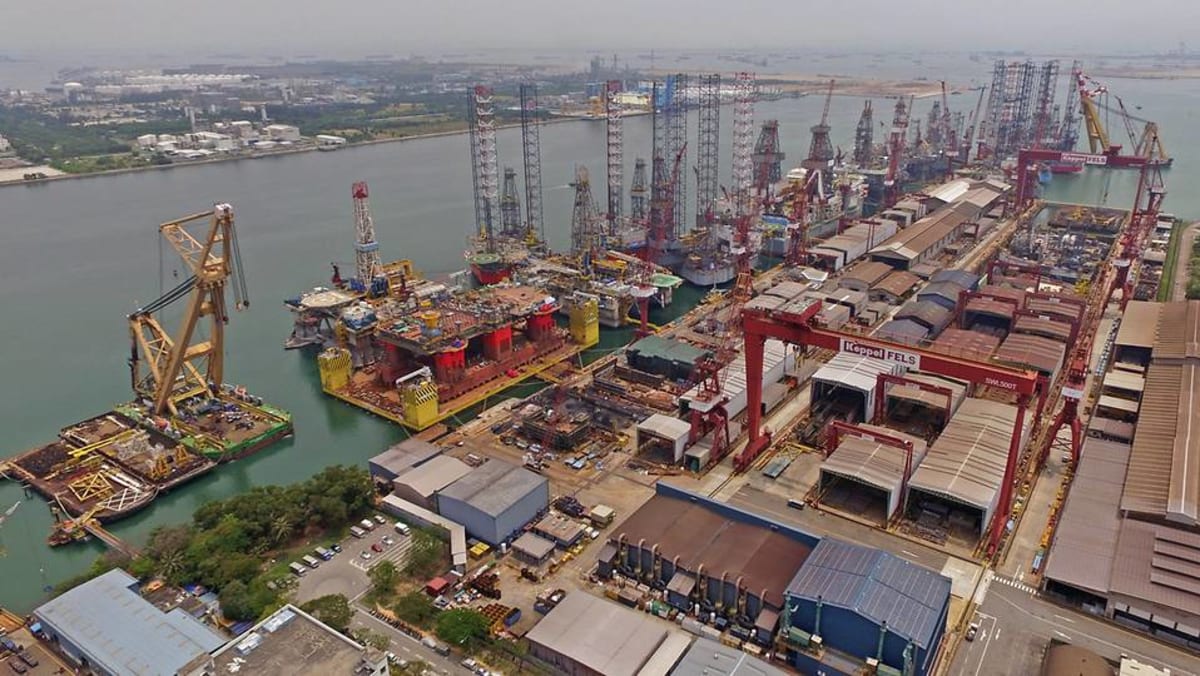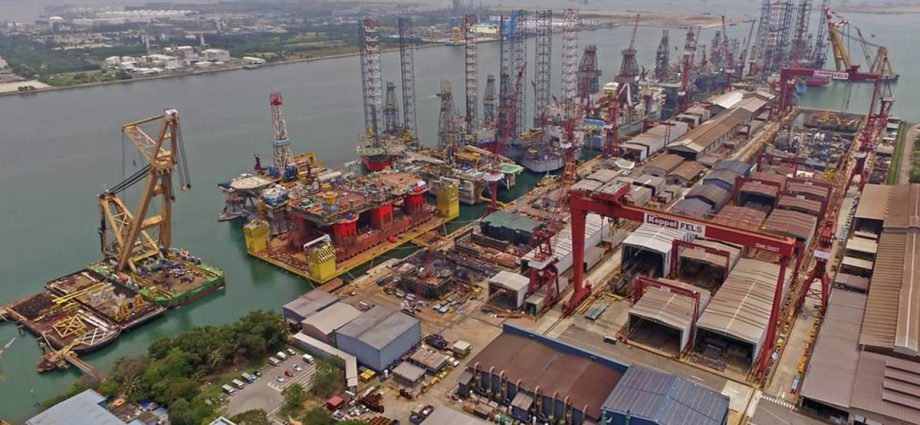
SINGAPORE: A senior counsel has questioned the decision by Singapore authorities not to prosecute six former senior management staff members of Keppel Offshore & Marine for a US$55 million (S$73 million) bribery case involving Brazilian oil giant Petrobras.
However, other lawyers who weighed in on the subject, while acknowledging the lack of clarity and how it might appear questionable to the public, suggested that the Attorney-General’s Chambers (AGC) might have reason not to divulge certain legally protected information.
After the commentary by Senior Counsel Harpreet Singh Nehal was published on Wednesday (Feb 1), Minister in the Prime Minister’s Office Indranee Rajah addressed “assertions” about the case in a Facebook post on Thursday and said the assertions were made on an “inadequate understanding of the facts”.
She said she would explain the facts at the next Parliament sitting on Feb 6, and the public “can decide for themselves”.
The commentary was initially published by the Singapore Law Watch, a local news service for the law community. It was no longer available online as of Thursday afternoon.
Responding to CNA queries, the Singapore Academy of Law, which manages the news service, said the article “was not within the editorial parameters of Singapore Law Watch which are focused on commentaries on the latest Singapore Supreme Court judgments and articles on recent legislative changes”.
WHAT THE SENIOR COUNSEL SAID
In his commentary, Mr Singh questioned the decision by the AGC and the Corrupt Practices Investigation Bureau (CPIB) made in January.
The two agencies had announced that they would not be prosecuting the six Keppel O&M employees for their involvement in the bribes allegedly paid to Brazilian state officials to secure 13 large contracts there.
Instead, the six will be given stern warnings.
Mr Singh asked if this decision signalled “a crack in Singapore’s long professed policy of zero tolerance towards corruption”, and whether Singaporeans should be concerned by the decision.
“In the absence of compelling further information from the authorities, the decision is discomforting,” he wrote.
Keppel O&M had allegedly conspired with others between 2001 and 2014 to pay large bribes to officials of Brazilian state-owned oil company Petrobras to influence the securing of 13 projects in Brazil.
The illegal payments were purportedly concealed through consulting agreements with shell companies, with Keppel O&M and its related companies earning profits of more than US$350 million from business corruptly obtained in Brazil.
These facts were admitted by Keppel O&M in an agreed statement of facts it signed with the United States Department of Justice (DOJ) in 2017, as part of a deferred prosecution agreement.
As part of a global resolution involving the DOJ and authorities in Brazil and Singapore, Keppel O&M paid US$422 million in fines.
CPIB investigated at least six former senior management staff members for their involvement, and summarised its decision not to prosecute them in “just one short paragraph” in a press release, said Mr Singh.
The paragraph reads: “This case is complex and transactional, involving multiple authorities and witnesses from several countries. There are evidential difficulties in cases of such nature. Many of the documents are located in different jurisdictions. In addition, key witnesses are located outside of Singapore and cannot be compelled to give evidence here. The decision whether to prosecute the six individuals for criminal offences has to take into consideration all relevant factors, such as the culpability of each individual, the available evidence and what is appropriate in the circumstances. Having taken these into consideration, stern warnings were issued to the six individuals.”
Mr Singh in his commentary questioned whether CPIB’s decision was justified. He said non-prosecution could not be justified just because a corrupt scheme is complex and transactional, and said there is already a large amount of evidence of the scheme available and accessible to prosecutors.
The six former staff members appear to be within Singapore’s jurisdiction, so CPIB has extensive investigative powers over them, he said.
“It is, therefore, difficult to appreciate the decision not to prosecute based on the CPIB’s limited explanation,” said Mr Singh.
He added that Keppel O&M itself has openly admitted its involvement and paid a massive fine. This is also “one of the largest bribery scandals in Singapore’s history” with the corrupt acts involving the wholly owned subsidiary of a Singapore public listed company, he said.
He asked what exactly was the missing evidence that prevented an effective prosecution from being mounted, who were the “so-called ‘key witnesses’ who are located overseas” and whether their evidence was so crucial that a conviction cannot be secured without their testimony.
Mr Singh also asked whether assistance has been sought from foreign authorities for any crucial foreign evidence and if such assistance has been refused.
“Is the evidence in this case such that not even a single individual was sufficiently blameworthy to warrant a prosecution?” he asked.
Mr Singh said that failure to prosecute cases like this one without strong justification, when the facts appear glaring, is “highly damaging” and leads to unhelpful speculation that there is some other factor at play.
“While the attorney-general is not ordinarily required to explain his prosecutorial decisions, given the stakes involved here, it will be highly desirable that he does so in this case,” said Mr Singh.

